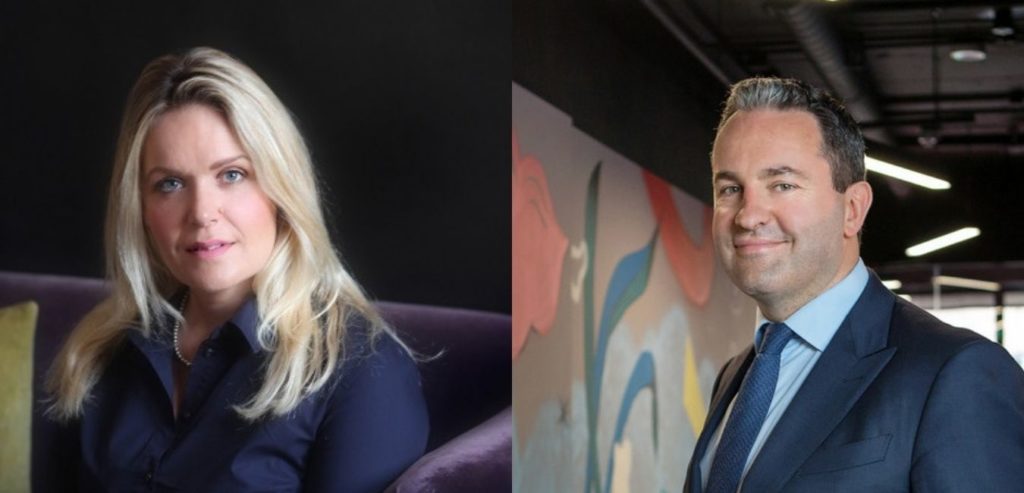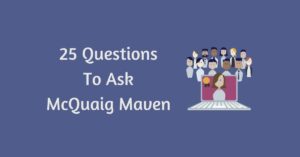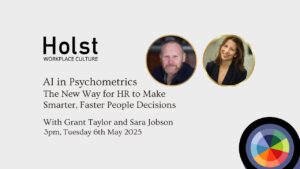In the second part of her conversation with Engage People’s Paul McClatchie, Holst MD Jo Emmerson talks about using McQuaig during the recruitment process.
In the first part of their conversation, Jo and Paul discussed the ‘human experiment’ of the last year, the personality traits to look out for in remote workers and how to manage them. In this second part, they go on to talk more about using McQuaig in the recruitment process.
Paul: We have used McQuaig with our existing team who have been together for 4-5 years, with our newer people. We’ve found the assessments to be very beneficial. What would you say to someone with an existing team who is looking to introduce psychometric assessments?
Jo: If you’re new to McQuaig and psychometric assessments, I definitely recommend that you have an internal member of staff fully trained to McQuaig Level 2 Accredited Interpreter level. This will help to feed back the McQuaig reports and to explain the project that you are trying to achieve. It’s so important to explain the project and gain consensus before you start. Help your people to understand that McQuaig is based on positive psychology. It’s a ‘let’s understand each other better and how we can help each other to be more successful’ project.
Traditionally, some psychometric tools have been perceived negatively. McQuaig is definitely not of that ilk. McQuaig is centred on understanding the individual, identifying how they prefer to work and how that fits with the rest of the team.
Paul: We attended training and found it quite surprisingly enjoyable. Very interactive, interesting and the time flew by. When it comes to hiring, when should you introduce the assessment? The CV gives a reasonable amount of information on an individual‘s past, and McQuaig peels that back further with natural working styles. How would you fit MoQuake into an interview process with 2 to 3 interviews?
Jo: There are different McQuaig tools that help in the recruitment process. We always recommend using the McQuaig Job Survey® to specifically identify the needs of the role. For example, one sales role may be different to another sales role. Or that over time the role itself changes and a needs a different set of personality traits. The McQuaig Job Survey® helps to benchmark the role. The report also provides interview questions to use in the first round of interviews. It actually gives a full hour of structured interview, but you can pick out what is most relevant. It also gives a job and gap analysis to help assess your candidate against your benchmark.
For second round interviews, use the McQuaig Word Survey®. To give an indication of how well the candidate and job match, use the report’s Job Fit Interview Guide, a comparison tool between the benchmark job survey and the candidate profile.
Finally at the third interview stage, the McQuaig Word Survey® provides a comprehensive bank of interview questions which really delve deeply into that individual’s character.
Paul: Moving onto the McQuaig Mental Agility Test. This was particularly useful for one of our finance clients with highly qualified candidates. Where do you feel it works best?
Jo: The McQuaig Mental Agility Test® is a really interesting assessment. It gives a mark out of 50 in a controlled test – 50 questions in 15 minutes. If everyone had enough time nearly everyone would get through it. It checks for accuracy and speed of thought. Perhaps it is more appropriate for some roles than others, but we do have clients who use it across the board. However, it can be dangerous to put a benchmark of let’s say 30 out of 50 and apply that universally. This is because different roles will require different things.
The way we look at it is that if someone scored 30 out of 50 and they attempted only 30 but got them all right, they have a very high accuracy level. They may not work as quickly as someone who answered them all, but only got 30 right, but their attention to detail and accuracy might be what you need for that role. We recommend that organisations set a benchmark for the role, not organisation wide. It can really help a third stage interview to decide between candidates.
Paul: How can an employer use profile types to identify what the business needs?
Jo: There is variation within the profile types. You can have an extremely dominant person or someone who tends to be dominant. Yet both will be Generalist profiles in McQuaig terms. We look for the strength of that trait to determine best fit. How traits can align with organisational objectives is more difficult. The way McQuaig would help in recruitment is to define the personality traits you are looking for using the McQuaig Job Survey®.
Of course in teams you need a mix of people to cover all bases. Too much of the same trait can result in conflict. We definitely look for a mixture of personality traits. McQuaig helps everyone in the team to understand themselves better. When they do, they can understand the values they bring to the organisation and what the organisation’s objectives are.
Paul: In recruitment, a recruiters desk is their own micro-business. But if you’re looking to build culture and bring in new people, they need to learn from those around them. We need to align the business objectives with what the individual is seeking. This takes communication and getting everyone onto the same page.
Jo: Yes, and that really helps when it comes to succession planning. When you can identify what people are looking for and how well that sits with what the organisation’s objectives, you can plan for the future.
Paul: Finally any tips and tools? Will your training stay online?
Jo: We’ve all been through some extraordinary circumstances. We’ve had to create a high level of resilience. There will be people who face further change moving back into an office environment. Or perhaps that they won’t go back at all. People try to understand each other better and be more collaborative.
Our McQuaig training has always been available online but not at this level. Our trainers tell us that the McQuaig Level 1 Foundation works really well online. The McQuaig Level 2 Accredited Interpreter was a full day classroom workshop discussing profiles and as we move out of lockdown we may look to schedule some face-to-face workshops later this year.We will just have to see where we go from here.
We’d like to thank Paul and the team at Engage People for inviting Jo to chat. Please get in touch if any of their conversation sparks questions that you’d like to put to us.
Contact us
We’re a team who practice what we preach. 2020 was tough, but we made it through into 2021 with perseverance, motivation and above all by supporting each other. Contact us to find out how we can help you to do the same.
flowprofiler® and associated marks are registered trademarks of Chalmers International Limited | All rights reserved
eqflow® and associated marks are registered trademarks of Chalmers International Limited | All rights reserved
resilienceflow® and associated marks are registered trademarks of Chalmers International Limited | All rights reserved
motivationflow® and associated marks are registered trademarks of Chalmers International Limited | All rights reserved






